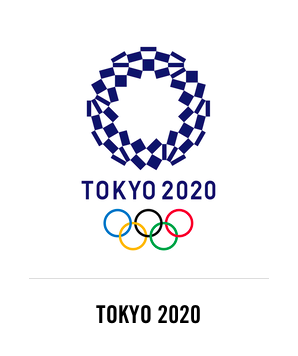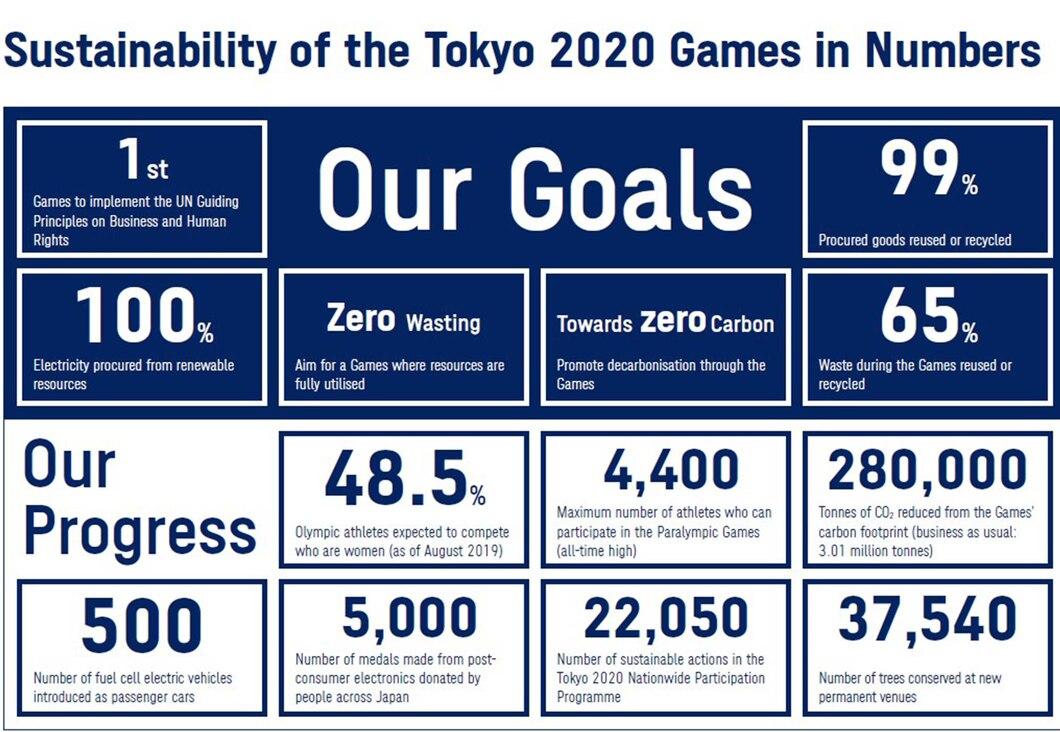Showcasing a Sustainable Society: Tokyo 2020 Releases Its Sustainability Pre-Games Report
Showcasing a Sustainable Society: Tokyo 2020 Releases Its Sustainability Pre-Ga…
The Report was prepared in accordance with the Global Reporting Initiative (GRI) Standards: Core option, a set of international standards governing sustainability reporting.
Key activities and achivements covered in the report include:
Activities promoting 100 per cent renewable energy electricity use during the Games:
- Tokyo 2020 is aiming to achieve 100 per cent renewable energy for the electricity used to power the Games, via procurement from renewable energy sources and the use of a tradable green certification system. The renewable energy mix will be from clearly identified power sources, and will include electricity from the areas affected by the Great East Japan earthquake and tsunami.
The use of hydrogen energy, in line with Japan’s transition to a hydrogen-based economy:
- In addition to the 500 fuel cell electric vehicles (FCEVs) that will be used at Games time, provided by Worldwide Olympic Partner Toyota, hydrogen will be used as the fuel for the Olympic and Paralympic cauldrons and torches during part of their journey through Japan. The Tokyo Metropolitan Government will also use hydrogen energy in some of the Olympic/Paralympic Village facilities.
Reduction of CO2 emissions:
- The Tokyo 2020 Games’ carbon footprint is estimated at 2.73 million tonnes. This represents a reduction of 280,000 tonnes of CO2 after implementing avoidance and reduction measures such as the use of rented or leased products, the use of existing venues, renewable energy use, low-pollution and fuel-efficient vehicles such as FCEVs, and the adoption of energy-saving facilities. “Towards Zero Carbon” is the message of Tokyo 2020’s climate change-themed intitatives, and encapsulates the collective efforts by Tokyo 2020 and its multiple delivery partners.
The Victory Ceremony Podium Project:
- Tokyo 2020, in collaboration with Worldwide Olympic Partner Procter & Gamble will implement an initiative to manufacture the Tokyo 2020 medal podiums from post-consumer plastic packaging collected throughout Japan. With plastic waste and marine plastic pollution becoming key global concerns, this project will showcase circular economy principles and a sustainable society that makes the most of available resources.
Promotion of the 3Rs concept (“reduce, reuse, recycle”) at Tokyo 2020 venues:
- Amongst other initiatives, recyclable paper containers for meals will be provided to spectators to encourage their use rather than single-use plastics. Tokyo 2020 will also promote proper waste sorting to achieve its target of reusing and recycling 65 per cent of Games-time waste.
Tokyo 2020 published Version 2 of its Sustainability Plan in June 2018, focusing on the various initiatives undertaken in alignment with the United Nations’ Sustainable Development Goals in the following areas: “Climate Change”, “Resource Management”, “Natural Environment and Biodiversity”, “Human Rights, Labour and Fair Business Practices” and “Involvement, Cooperation and Communications (Engagement)”.




